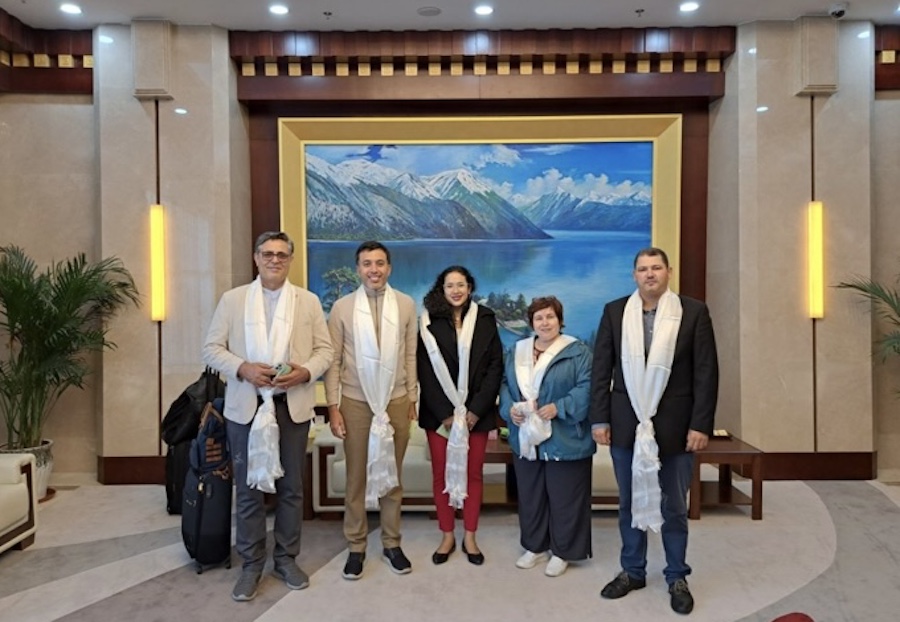By Tenzin Nyidon
DHARAMSHALA, Sept 6: A delegation of United Nations (UN) envoys recently embarked on a highly scrutinised tour of Tibet, as part of an organised trip by the Chinese government. This visit comes amid increasing international scrutiny over China’s human rights record and is seen as an attempt by Beijing to counter criticism ahead of a comprehensive human rights review by the global body in early 2024.
Photographs shared on the social media platform X, formerly known as Twitter have raised questions about the composition of the recent tour of Tibet organised for Ambassadors to the United Nations Human Rights Council in Geneva, according to Reuters. The UN delegation comprised a group of ambassadors representing various member states, including representatives from Cuba, Belarus, Venezuela, Pakistan, and Nicaragua.
The apparent dominance of Chinese allies in the delegation has fuelled concerns about the impartiality of the tour. Some observers speculate that China’s choice of close allies in the delegation could allow Beijing to exert influence over the narrative and discussions during the tour, potentially limiting critical inquiries. The Chinese government has defended the composition of the delegation, stating that the selection process was in accordance with standard diplomatic practices and that all UN Human Rights Council member states were invited to participate.
The Chinese government orchestrated tour of Tibet from August 28 to September 2 occurred against a backdrop of heightened international concern over human rights abuses and forced assimilation allegations. This move by Beijing is viewed by many as an attempt to mitigate international criticism and whitewash its human rights record. The recent action by UN experts, most recently in August, has raised concerns about the plight of nine jailed Tibetan human rights defenders. The United States imposed visa sanctions on Chinese officials, accusing them of participating in the forced assimilation” of almost one million innocent Tibetan children through state-run boarding schools in Tibet. U.S. Secretary of State Anthony Blinken issued a statement outlining this action.
In response to UN Ambassadors’ tour of Tibet, Lhadon Tethong, Director at Tibet Action Institute who first exposed China’s colonial boarding school system in a ground breaking report in 2021 stated, “Despite the obvious farcical nature of this trip, the international community should see this as evidence that China is not immune to pressure on its rights record and must be further pressed to halt the campaign of ethnic elimination and repression in Tibet, including the placement of one million children, some as young as four years old, in a system of colonial boarding schools.”
“China has blocked the UN from gaining free and unfettered access to Tibet for decades and is now trying to use a secretive tour of some of its closest authoritarian allies to whitewash its unrelenting repression in general and the colonial boarding school system in particular,” she further added.
China, in the past, has also faced international scrutiny over its human rights practices, particularly in Tibet, where concerns about cultural preservation, religious freedom, and political dissent have been raised over the years. The Chinese government, however, has consistently defended its policies in Tibet, asserting that they aim to improve the region’s socio-economic development and maintain stability.











One Response
The idea of what is acceptable behavior by governments varies quite a bit depending on location. If there is not one unifying standard, that variation is quite noticeable. Take for example abortion rights in the US and the Supreme Court decision behind a landmark case from the 70s called Roe v Wade. However, it may not be as simple as saying, if people don’t like it they can leave. Migration patterns vary quite a bit based on socio-economic factors. Something that people who have grown up under one sort of acceptable standard may not grasp that easily. In general, one would assume most people would want to live their lives without too much government harassment.